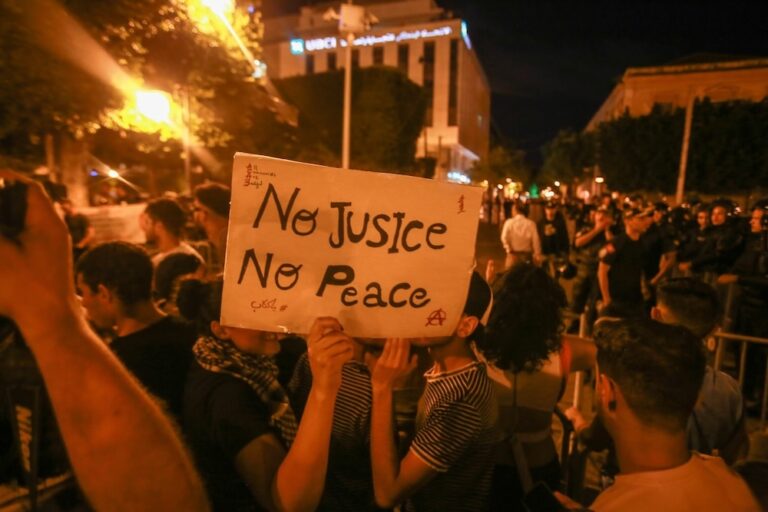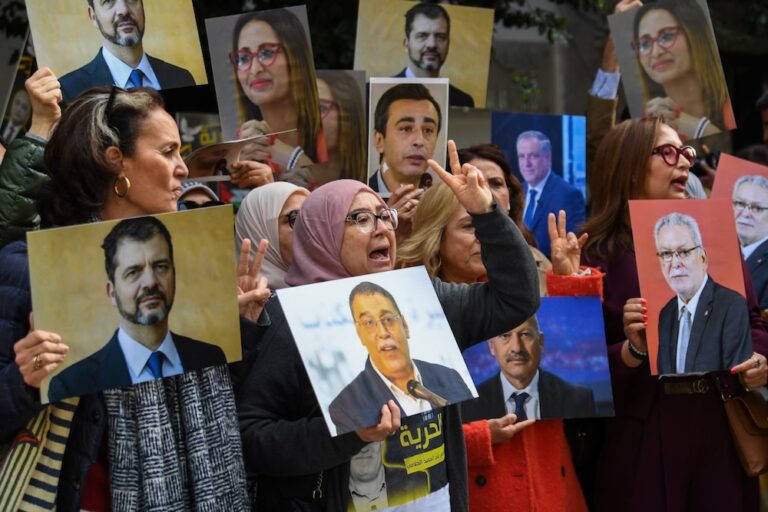(OLPEC/IFEX) – The following is an abridged version of a 2 March 2006 statement by the Conseil National pour les Libertés en Tunisie (CNLT), an OLPEC partner: Police prohibit gathering of support for Mohamed Abbou in front of El Kef prison A peaceful demonstration directed by nine NGOs from Tunisian civil society was scheduled for […]
(OLPEC/IFEX) – The following is an abridged version of a 2 March 2006 statement by the Conseil National pour les Libertés en Tunisie (CNLT), an OLPEC partner:
Police prohibit gathering of support for Mohamed Abbou in front of El Kef prison
A peaceful demonstration directed by nine NGOs from Tunisian civil society was scheduled for 2 March 2006 in front of the El Kef prison, where Mohamed Abbou, lawyer and human rights defender, has been imprisoned since 1 March 2005.
The action was organised to demand the release of this eminent figure of the Tunisian bar who was sentenced in June 2005 to three-and-a-half years in prison, the result of a “sham” hearing in which neither the accused nor the witnesses were heard and the lawyers for the defence were expelled from the courtroom, unable to plead their case. The charges laid against Abbou, stemming from offence taken by authorities to an article posted online, constitute an abuse against freedom of expression.
The organization of this action gave civil society representatives yet another opportunity to confirm that not only were the rights to freedom of expression and assembly violated, but also the right to freedom of movement. In fact, all the roads leading to the city, situated in Tunisia’s northwestern region (270 km from Tunis), were blocked by national police officers working alongside agents from the political police who tracked down the cars belonging to the activists. Many civil society representatives were made to stop and turn back.
Only Samia Abbou, whose day it was to visit her husband, and the activists who live in Kef and Jendouba managed to gather in front of the prison. When Samia brandished a placard demanding the liberation of Abbou, she was set upon and manhandled by plains-clothed agents posted in front of the prison. She then announced: “I will no longer tolerate seeing my husband behind bars. My children cry every time we set out to visit their father. I will come every Thursday and stand in front of the prison doors with this placard until the day he is let out.”


